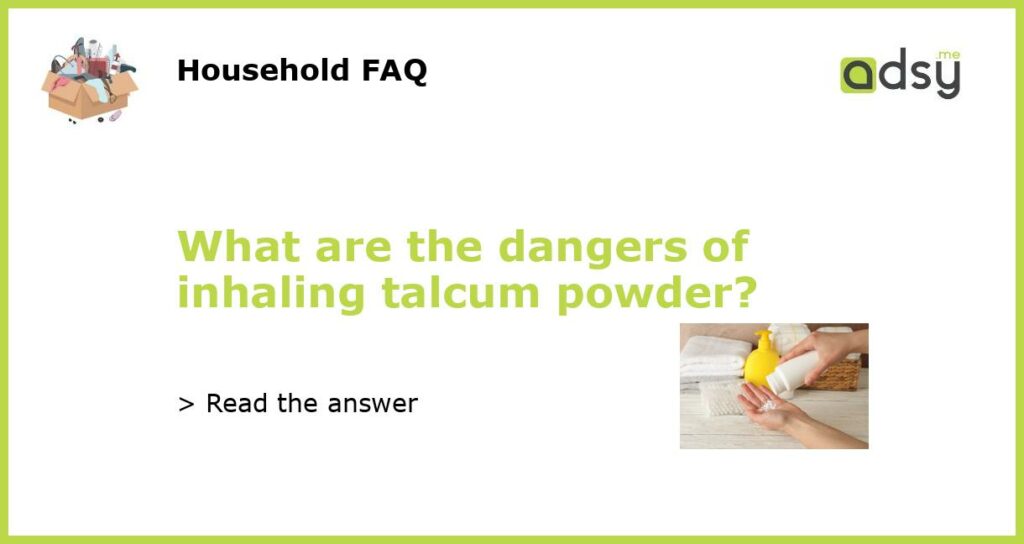Dangers of inhaling talcum powder
Talcum powder is a common household item that is often used for personal care and hygiene purposes. However, recent studies have raised concerns about the potential dangers of inhaling talcum powder. In this article, we will explore the potential dangers of inhaling talcum powder and how it can affect your health.
Increased risk of respiratory issues
Inhaling talcum powder can pose serious risks to your respiratory system. Tiny particles of talc can easily enter your lungs when inhaled, leading to inflammation and irritation. This can cause respiratory symptoms such as coughing, wheezing, and difficulty breathing. Prolonged exposure to talcum powder can increase the risk of developing respiratory conditions such as asthma and chronic obstructive pulmonary disease (COPD).
Risk of talc-related lung diseases
Studies have linked the use of talcum powder to the development of talc-related lung diseases. One such disease is talcosis, which is caused by long-term inhalation of talcum powder. Talcosis can lead to severe lung damage and can be life-threatening in some cases. Another disease associated with talcum powder inhalation is talc granulomatosis, which is characterized by the formation of granulomas in the lungs. These granulomas can impair lung function and increase the risk of respiratory infections.
Potential asbestos contamination
One of the major concerns with talcum powder is the potential contamination with asbestos. Asbestos is a group of naturally occurring minerals that was widely used in various industries until its harmful effects were discovered. It is a known carcinogen and has been linked to lung cancer and mesothelioma. While most talcum powder products in the market today are asbestos-free, there have been cases where talcum powder products have been found to contain traces of asbestos.
Increased risk of ovarian cancer
Another significant danger of talcum powder is its potential link to ovarian cancer. Several studies have investigated the association between talcum powder use in the genital area and the development of ovarian cancer. The findings have been mixed, with some studies suggesting a small increase in the risk of ovarian cancer with long-term talcum powder use in the genital area. However, further research is needed to establish a definite causative link.
Safety precautions
To minimize the risks associated with inhaling talcum powder, it is essential to take certain safety precautions. Avoid using talcum powder on babies and infants, as their delicate lungs are more susceptible to respiratory issues. If you do use talcum powder, use it sparingly and avoid inhaling the powder. Consider using talc-free alternatives such as cornstarch-based powders, which are generally considered safer. If you work in an industry where you are exposed to talc dust, use appropriate protective measures such as wearing a mask to reduce inhalation.






